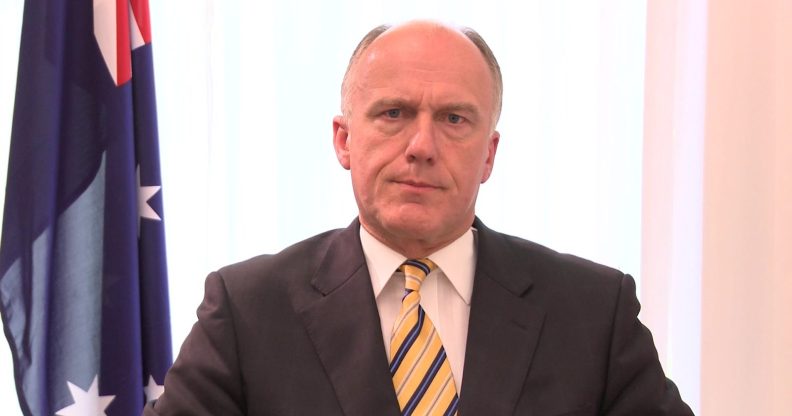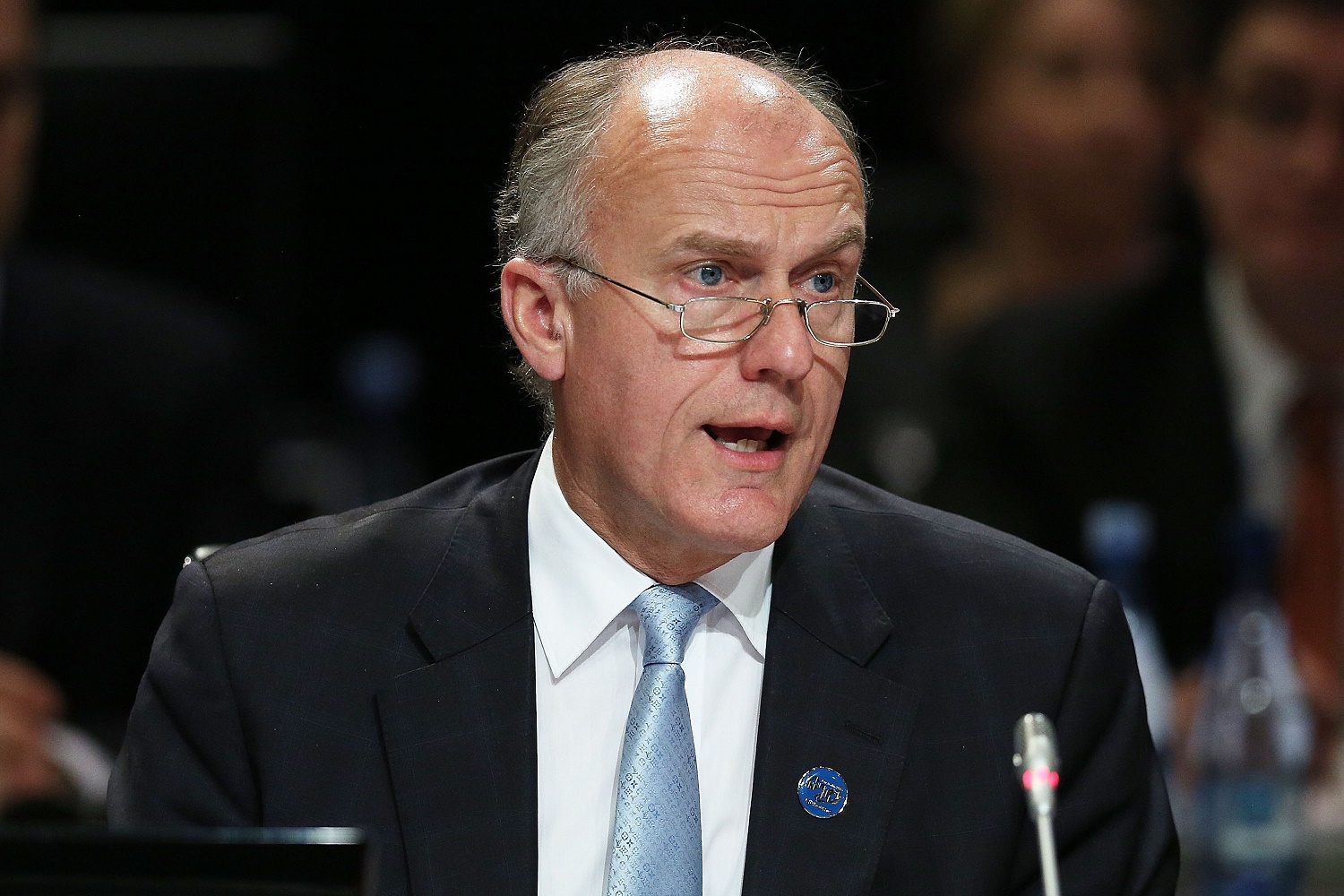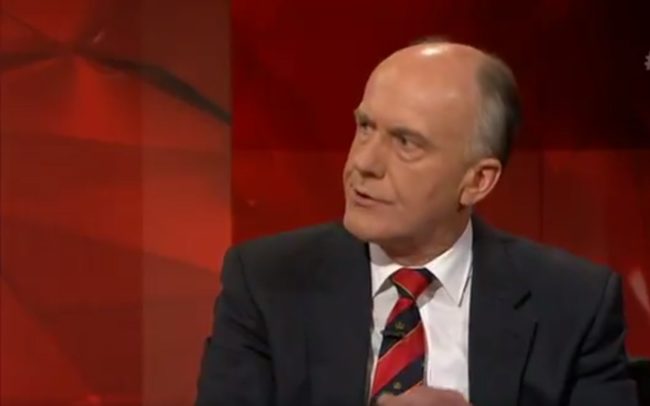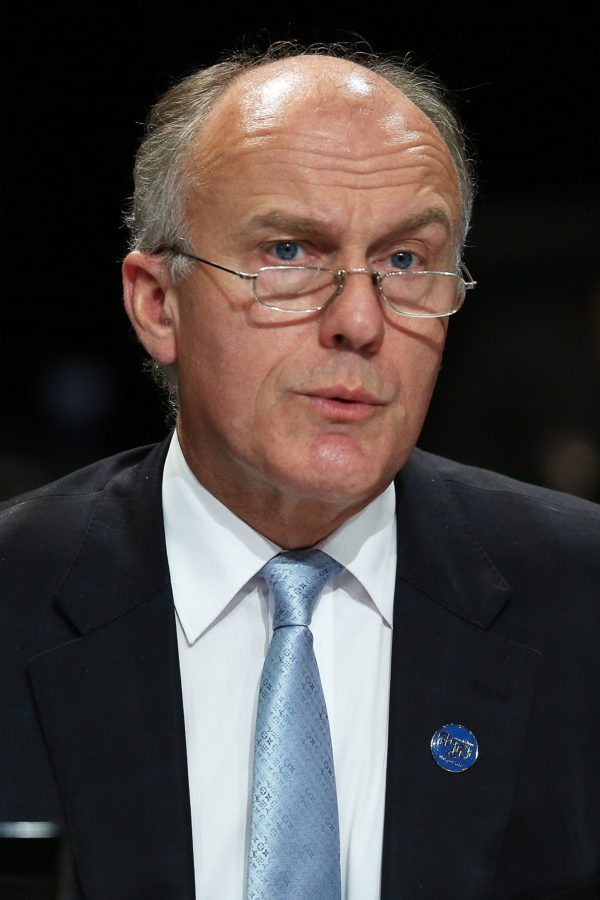Australian politician calls colleagues ‘dead fish’ in defiant rant against same-sex marriage

An Australian Senator went on a defiant anti-gay marriage rant as the country’s Parliament faces pressure to pass a bill.
Earlier this month Australians gave their overwhelming backing to equal marriage in a public vote, by a margin of 61.6% to 38.4%.
As the vote was purely advisory in nature, legislation on the issue is up to Parliament – where lawmakers inside Malcolm Turnbull’s conservative Coalition government are still divided on the best way to proceed on the issue.
Ahead of Parliamentary debates on the issue, the groups behind the ‘No’ campaign have doubled down in their position – with some calling for Parliament to disregard the will of the people, despite the outcome of the vote.

As the Parliament began to debate the issue this morning, senior government Senator Eric Abetz, who was previously Leader of the Government in the Senate, delivered a defiant homophobic speech.
Abetz, a strong opponent of LGBT rights, said he ‘regrets’ that Australia would pass equal marriage.
He said: “Same-sex marriage is not a recognised human right such as freedom of speech, marriage between a man and a woman, and freedom of religion, amongst others.
“That, of course, of itself does not stop parliaments from legislating for it, and I suspect at the end of this process Australia will have changed its law on marriage. It’s a change I regret for the sake of our children.”

Abetz went on to claim that voters were misled because “the legislation before us is not restricted to same-sex couples”, allowing two people to marry without distinction as to sex.
He said: “The bill therefore goes further than that which was approved by the Australian people and adopts the ideology of gender fluidity, which is part of the much discredited and rightly reviled and Orwellianly misnamed Safe Schools program.
“If gender fluidity had been part of the campaign, the result may well have been different. If this was always intended then the question should have been explicit. Australians deserve an explanation as to why it wasn’t.”
Of course, gender fluidity was a huge part of the No campaign’s arguments, telling organisers to play off fears over ‘gay sex and gender bending’.
Abetz continued: “So much for a simple amendment to allow gays to marry. The gender agenda is already being stretched and the bill goes a lot further than that for which the Australian people gave their approval.
“Many ‘yes’ voting Australians rightly feel betrayed that we are debating changes for which they did not vote. During the lead-up to the postal survey, we were told by ‘yes’ advocates that nothing would change other than gay people would be allowed to marry. We now know that to be incorrect.”
He added: “There is no doubt there are consequences—consequences which sacrifice long-established rights on the altar of an aggressive, politically correct agenda.
“We can avoid this travesty in Australia by acknowledging the reality of these disturbing examples from overseas and providing the protections needed.
“The substantial ‘no’ vote, at 38.4 per cent, cannot be arrogantly dismissed as of no consequence.
“To assert that, because the ‘no’ vote lost, its voice should be obliterated from the public discourse is a display of ugly hubris.”

(Photo by Graham Denholm/Getty Images)
The lawmaker hinted that he would vote against the bill despite the wlil of his electorate, insisting: “For parliamentarians, I suspect the public will have a higher regard for those who are willing to take a stand on an issue of principle.
“I think that the electorate can distinguish between a particular point of view on an issue and their high regard for their parliamentary representative.
“As someone told me the other day, it’s only dead fish that go with the flow; it’s only the live fish that have the capacity to swim against the current.”
Elsewhere this week, more than 160 LGBTI organisations, leaders and supporters from around the country have signed a statement calling on the Australian Parliament to recognise the will of the people and ensure marriage equality is passed by the end of the year.
Tthe joint statement says.“As organisations, leaders and supporters of the lesbian, gay, bisexual, transgender and intersex (LGBTI) communities, following the resounding YES result in the Australian Marriage Law Postal Survey, we call for the Parliament to pass marriage equality legislation as soon as possible.
“More than 7.8 million people said YES to marriage equality. The strong YES vote delivered a loud message – discrimination against LGBTI Australians must end. It is now time for our parliament to act and pass marriage equality this year.”
Signed by groups from around the country including ACON, Amnesty International Australia and state Gay and Lesbian Rights Lobbies, the statement identifies the Marriage Amendment (Definition and Religious Freedoms) Bill (2017) drafted by Government MPs and supported by the Opposition as the best way to achieve marriage equality by consensus.
The bill reflects the principles of the Report on the Commonwealth Government’s Exposure Draft of the Marriage Amendment (Same-Sex Marriage) Bill and has wide cross party support.
Anna Brown, from the Equality Campaign, said, “This united statement urges Parliament to act on the largest ever mandate for marriage equality delivered by the Australian people.
“The legislation introduced to parliament by Dean Smith strikes a fair balance between LGBTI couples having equal access to marriage and the need to ensure people can practice their religious beliefs.”
The Equality Campaign’s Alex Greenwich said, “Australians said yes to marriage equality, not to see the no side’s talking points turned into amendments that give a licence to discriminate.
“Fairness and equality are at the heart of Australian society and we believe our laws should reflect these values.
“The consensus bill has support across the government, opposition, and cross-bench and there should be no impediment to it passing now.”

